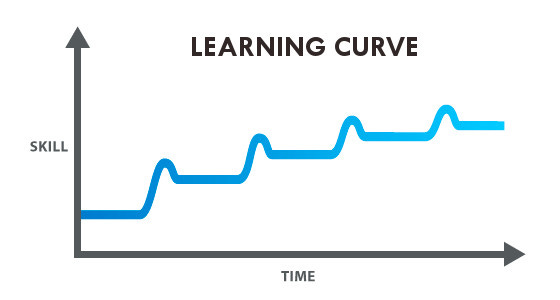Slow and steady wins the race
We’ve all heard the story of the rabbit and the tortoise, we’ve all received this piece of wisdom from relatives and elders. That maxim is so old that it has become a cliche at this point.
I’ve been at the receiving end too. It’s irritating to say the least.
When we’re in our early to mid 20s, we’re restless. The world seems to be passing us by and we’re in a hurry to catch up.
But as the years pass by, the realisation slows starts dawning that there is more truth to this simple maxim than meets the eye.
UPSC Connection
I’m sure you’ve heard plenty of times that UPSC preparation is a marathon and not a sprint. That maxim is as old as the rabbit and the tortoise story itself if you believe some.
And just like that story, there a lot of truth to it.
Preparing for UPSC is a tough task but not for the reasons you think.
There’s a vast syllabus for UPSC prelims and Mains since you have to study a lot of subjects like history, geograpy, polity, economy, environment, logic, maths, english, etc. etc. You have to solve MCQs, write essays, write answers, study for your optional, etc and the process lasts for a year by itself.
But the toughest part about this exam is that have to keep doing these things for long periods of time.
I don’t know anyone who cleared UPSC with a month’s preparation.
A few clear it with a year’s prep (the first attempters) and most take a few years. It’s this period of studying the same subjects over and over again, without fail, without flagging that eventually leads to success.
Because:

So how do we ensure that we can do these things long term?
End of Story. Let’s talk strategy.
Building Consistency
It’s not easy. It takes constant practice. There will be days that you hate doing studying, but it is on those days that you must.
Here are some steps that you can use to build consistency in your schedule.
1. Start Slow, Start Small
Don’t set impossible targets for day 1, that’s just setting yourself up for failure.
You’re going to be studying for atleast one year, if not more during UPSC prep. Don’t be a in a rush. If you think you can just wake up one day and start studying for 10 hours then let me just stop you now. There are a few people who are capable of doing that, but the rest of us mortals need to build up to it.
Start like this:
Week 1 - 2 hours daily study.
Week 2 - 4 hours daily study.
Week 3 - 6 hours daily study.
Week 4 - 8 hours daily study.
You will start with something achievable and without realising you will be studying 8 hours a day in a month’s time.
Don’t be in a rush. Take is slow.
2. Show Up, EVERYDAY.
Study everyday. Even if for just 30 minutes.
We all feel like taking breaks every now and then. Nothing wrong with it. But don’t give in to the first impulse.
That starts you down the path of laziness, let me show you how:
Cue: You sit to study.
Craving: You feel like taking a break.
Response: You watch youtube for 30 minutes.
Reward: Cheap dopamine.
This is how habits are formed.
Now every time you sit to study, you will want to watch some youtube videos and that’s not going to get you anywhere in the long run.
What can you do about it?
Every time you feel like taking a break, set yourself a short task before you get up. Something like, let’s study just 5 pages, or 30 mins.
90% of the time, you will end up completing the whole task. Provided you learn to ignore the first impulse.
Take a break on your terms, not on impulse.
3. Use Schedules
We are creatures of habit and schedules are a great way to build consistency.
The more you can automate your day the better. This way you don’t have to think about doing things but are just doing them one after the other.
A simple practice:
Wake, sleep and study everyday at the same time.
4. First Plan Your Breaks
We start procrastinating when we keep working without breaks.
We all need breaks, we’re humans after all, not machines. Also, downtime helps you recover from fatigue & lets you play with new ideas.
So when you plan, schedule your breaks first.
For example:
While creating a daily time table, I would fix my free time first. (2-3 PM and 6-7 PM)
Only after deciding that I filled the rest of the day with study targets. So going into the day, I know where my breaks are, I don’t have to repeatedly think about when can I take a break.
5. Be Patient.
To clear UPSC, you will need to grow and become an Officer. This is not growing in height, but in character and personality.
And growth doesn't happen over night.
Have patience and keep building.

If you hit plateaus don’t break consistency. Find ways to push through those limits. Test scores not going up? Read the material twice before the next test.
Don't give up.
6. Motivate Yourself
JUST DO IT! Yeah, sure. Brilliant idea. Why didn’t I think of this before?
Motivation doesn’t last long. Generic motivation messages can help but they can only do so much. We need to look at motivation in a structured manner.
Who knows what motivates you best? YOU.
Find ways to motivate yourself. Be it exercise, talking to friends and family, or simply watching some feel good movie/series.
Find out what works for you and then make it a part of your daily routine.
Don’t Stop Believing
Having faith in yourself is the foundation for everything else.
Trust yourself:
- That you have what it takes.
- That you will do what is needed.
- That you will show up everyday.
- That you will grow from each challenge.
And you will become unstoppable.
Something to help with this: Meditation.
Prelims Essential Course + Mentorship
Best Teaching.
Everything you need in one course (Mentorship, Lectures, Prelims/Mains/CSAT Test Series, Current Affairs, Answer Writing Guidance, Crisp value addition material)
Intensive Course for UPSC 2024.
Previous Post